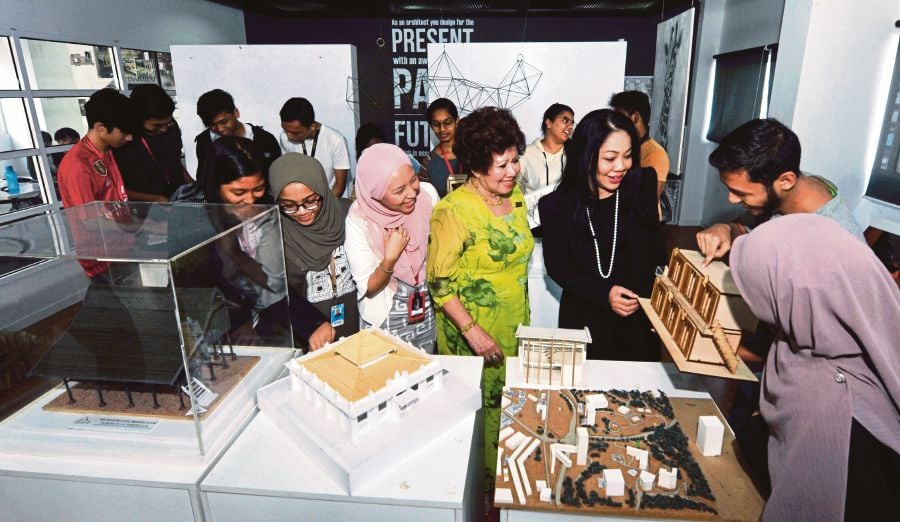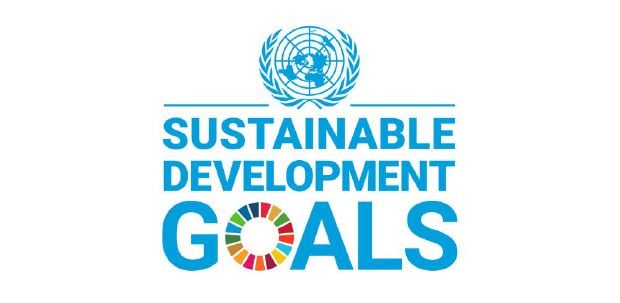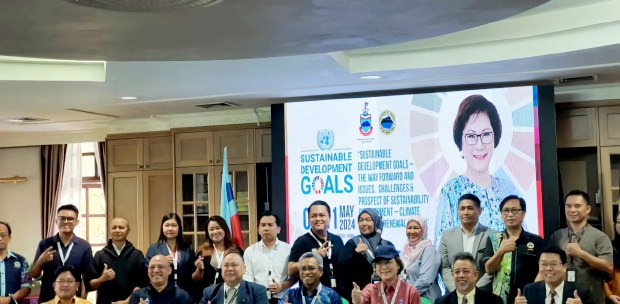Universities in Malaysia are faring pretty well, with their reputations increasingly recognised worldwide.
While none is in any top 100 chart, they are decidedly on the rise.
Perhaps embracing stronger student engagement and promoting active participation of students in solving problems could catapult them into the spotlight as among the best universities in terms of social impact.
The foundations are already solid with four national higher learning institutions recognised in the top 100 list of the Times Higher Education University Impact Rankings, a new global tool aimed at measuring and comparing the overall commitment of universities in achieving the Sustainable Development Goals (SDGs).
With inequality and climate change the most defining issues of our times, universities leveraging their connections with local communities are in a crucial position to lead in achieving the SDGs.
The Malaysian government, through the recently launched Shared Prosperity Vision 2030, is in a position to empower students’ ingenuity and creativity not only in the creation of awareness of SDGs but also in coming up with novel solutions to the most pressing problems, from lack of quality healthcare and inclusive education, to creation of decent jobs to innovative ideas to improve recycling and reduction of plastic use to sustainable preservation of forests, rivers and oceans.
To facilitate and support such endeavours, we need new instruments based on cooperation and partnerships among universities.
Imagine, for example, the creation of a national SDGs’ Impact Fund targeting university students, helping them develop the required leadership and creativity to achieve the SDGs locally.
How would such a fund work? First and foremost, all the universities should come together through a National Compact for promoting and pursuing the SDGs.
At the global level the examples include the recently launched University Global Compact that was initiated by a group of 15 universities with the support of the Rockefeller Foundation, the Sustainable Development Solutions Network (SDSN) and United Nations Institute for Training and Research (UNITAR).
The SDSN itself is a global network with activities all over the world. Malaysia is well represented with a national chapter led by the Jeffrey Sachs Centre at Sunway University. Just to give an idea of the power of such networks, in August this year, SDSN, through its member Kateb University, hosted a symposium in Kabul, Afghanistan that focused on the role of universities in the implementation of the SDGs.
Such exercises should be promoted and coordinated in Malaysia, too. Each university should promote social innovation, partnering with students in the creation of local SDGs’ hubs, university-based centres to achieve the goals locally. It is imperative that such a platform be co-driven and co-led by students and the management of the university.
Another is the Centre for Environment and Development Studies (CEMUS), based at Uppsala University and the Swedish University of Agricultural Sciences, a student-initiated and led research centre, a trailblazer on collaborative partnerships.
Obviously, it took years for CEMUS to get where it is in student- driven sustainable development. The SDGs’ hubs in Malaysia could gradually grow with students being mentored and supported by their respective academic staff.
A way to propel such hubs would be to gradually convert all existing and oftentimes overlapping campus-based committees related to environment and sustainability into a common planning and execution platform; student associations and clubs empowered with a voice and a clear autonomy of action.
Bringing coherence and coordination among all campus stakeholders is strategically important. Carnegie Mellon, an elite university in the United States, is stepping up efforts with a campus-wide Sustainability Initiative and Voluntary University Review on the SDGs in 2020, both signs of a comprehensive common strategy in SDGs being championed by the university.
Such a collaborative spirit would be the catalyst to set up localised university-led SDGs’ Impact Funds where students can be supported, technically and financially, to execute ideas to be judged, evaluated and awarded through yearly competitions. The winners would be incubated at a central level by a “special purpose vehicle”, the National SDGs’ Impact Fund Secretariat, drawing expertise from members of the private sector and civil society acting as mentors and investors.
The government should take the lead in such a strategic initiative. Interestingly each university could hold an annual SDGs conference as a platform to share ideas and best practices.
For example, University Tunku Abdul Rahman’s Sungai Long Campus organised a two-day first International Young Leaders Conference, that began yesterday, on SDGs entitled “Youth Empowerment and Inclusion in Achieving Sustainable Development Goals”. Other universities have been promoting similar engagements.
The fact that Times Higher Education University Impact Rankings 2020 will be expanded to include all 17 goals rather than only 11 used in this year’s ranking, should motivate each university in Malaysia to think and act boldly, step up engagement and allow students to have a share of leadership and a stake in the decision-making required to achieve the global SDGs.
The writer is the co-founder of ENGAGE, an NGO partnering with youths to promote social inclusion in Nepal. He can be reached at [email protected]
The views expressed in this article are the author’s own and do not necessarily reflect those of the New Straits Times
hr>






